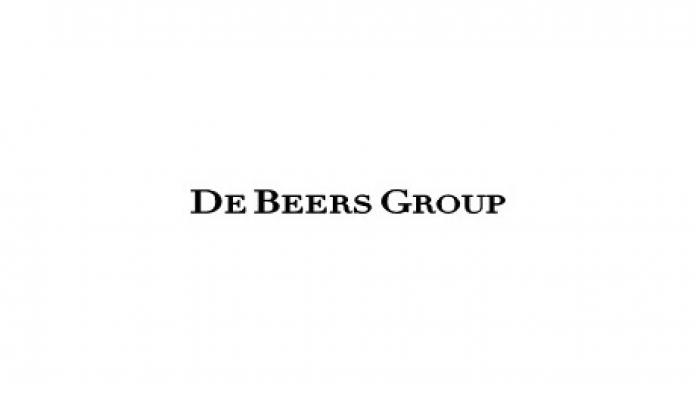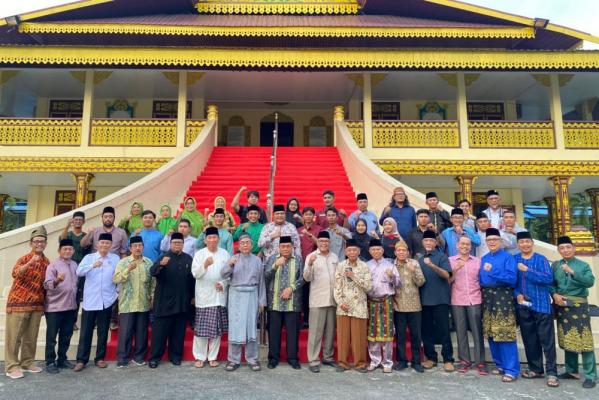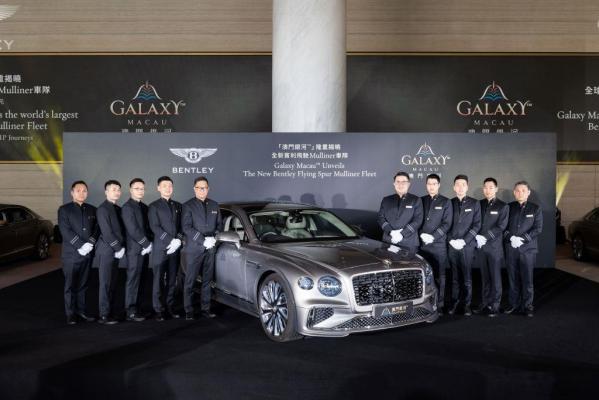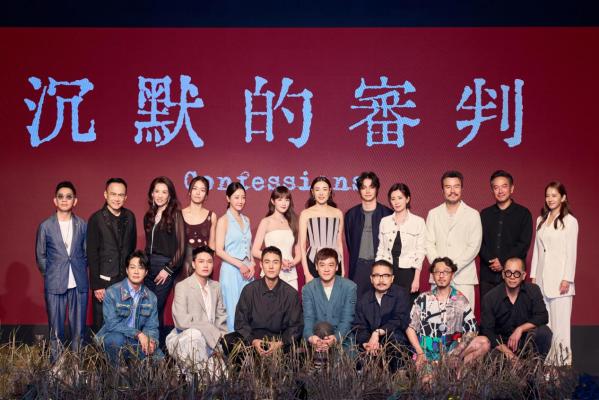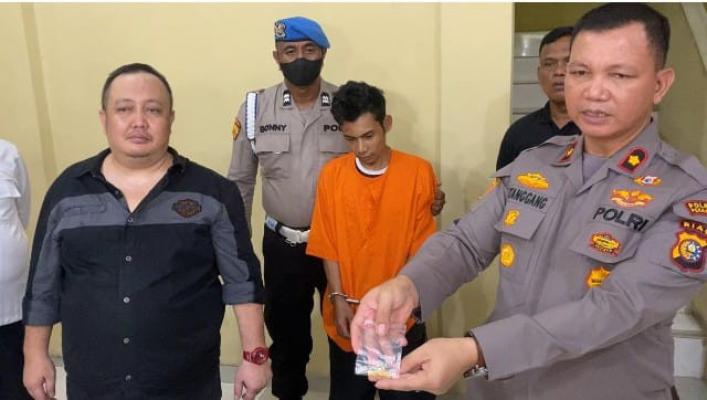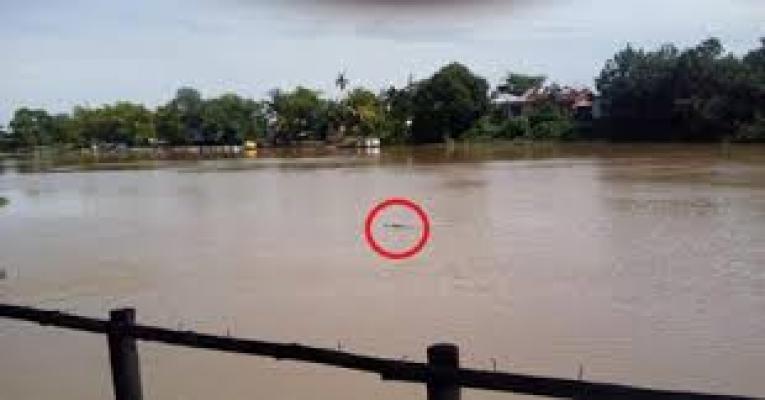- Home
- MediaOutReach
- Singapore Celebrates 60 Years of Independence with an Enticing Multisensory Pavilion ‘RASA-TABULA-SINGAPURA' at the Venice Architecture Biennale 2025
Singapore Celebrates 60 Years of Independence with an Enticing Multisensory Pavilion ‘RASA-TABULA-SINGAPURA' at the Venice Architecture Biennale 2025
Selasa, 06 Mei 2025 | 21:45

SINGAPORE -
Media OutReach Newswire
- 6 May 2025 - In celebration of Singapore's 60th year of independence
(SG60), the Singapore Pavilion at the Venice Architecture Biennale 2025
invites visitors to take a seat at the Table of Superdiversity—an
enticing reimagination of city-making and nation-building through the
universal act of dining.
Titled RASA-TABULA-SINGAPURA, the Pavilion reinterprets the Latin notion of tabula rasa (a blank slate) as a multisensory experience. Here, RASA (taste in Malay), TABULA (table in Latin), and SINGAPURA (Lion City in Sanskrit) converge as a metaphor for Singapore's distinctive identity, shaped by centuries of movement, exchange, and reinvention. Commissioned by the Urban Redevelopment Authority of Singapore (URA) and the DesignSingapore Council (Dsg), the Singapore Pavilion is organised by the Singapore University of Technology and Design (SUTD), and is curated by a multidisciplinary team from SUTD: Prof. Tai Lee Siang, Prof. Khoo Peng Beng, Prof. Dr. Erwin Viray, Dr. Jason Lim, Asst. Prof. Dr. Immanuel Koh, and Assoc. Prof. Dr. Sam Conrad Joyce.
The Pavilion uses dining—one of Singapore's beloved national pastimes—as a curatorial lens to explore how architecture, policy, and participatory design intersect in the everyday lives of Singaporeans. Through a curated menu of architectural and urban planning projects, RASA-TABULA-SINGAPURA offers visitors a 'taste' of Singapore, by engaging with the key ingredients that shape its built environment. 'Main courses' highlight key developments and districts such as Pinnacle@Duxton, an iconic public housing development in Singapore, that reflects Singapore's innovative approach to urban growth and transformation; while 'side dishes' showcase innovations in design, policy, and community-building, which contribute to Singapore's strength as a multicultural society.
The Pavilion's tablescape reflects and applies the theme of Biennale curator Carlo Ratti—Intelligens: Natural. Artificial. Collective.—to Singapore's context. Building on the word 'intelligence' and the Latin word 'gens', which means 'people', the Pavilion seeks to express Singapore's superdiversity by illustrating how the convergence of global and local influences, complex data, as well as myriad flows of people, goods, ideas and innovations, collectively shapes Singapore's unique identity and the way we rethink the built environment.
"Illustrating Singapore's superdiversity, we are highlighting seven 'main courses' at RASA-TABULA-SINGAPURA—each offering a taste of how Singapore plans for life at every scale. At Pinnacle@Duxton, we explored vertical living as a framework for superdiversity—where density, design, and innovation come together in the sky. Moving from single developments to district-scale planning, projects like Tengah and Changi Airport demonstrate how Singapore applies the same design sensibility to shaping entire ecosystems of liveability and movement. These ideas continue through our research and teaching at SUTD, where planning for the future means designing for complexity. It's one expression of a city always planning ahead, always becoming," said Prof. Khoo Peng Beng, Co-Curator for the Singapore Pavilion, head of the Architecture and Sustainable Design Pillar at SUTD and a recipient of the President's Design Award.
Another key example on display on the dining table is CapitaSpring, a 280-metre-tall tropical high-rise in the heart of Singapore's Central Business District that exemplifies the city's progressive planning. The biophilic spectacle is a showcase of Singapore's Landscaping for Urban Spaces and High-Rises (LUSH) policy—requiring developers to replace greenery lost on the ground with vertical landscapes. Over 80,000 plants are woven into the tower's fabric, including a soaring four-storey Green Oasis 100 metres above ground, one of Singapore's highest that is publicly accessible in commercial buildings.
Through the exhibition's interactive installations and vibrant dining-inspired setting, RASA-TABULA-SINGAPURA brings this urban feast to life, inviting visitors to consider how collective views on natural, artificial, and social aspects can shape spaces that reflect shared needs, values, and aspirations. The Pavilion becomes a living forum where visitors can discover how design, data, and diversity converge to craft Singapore's evolving cityscape and its underpinning interconnected systems.
"Through thoughtful urban planning and design, we create environments that inspire and support how we live, work, play, and connect. In a land-scarce city like Singapore, we need to balance density, diversity, and design. Planning policies, cultural values, environmental priorities, and community needs are considered and integrated to create and shape spaces that are inclusive, resilient and adaptable. RASA-TABULA-SINGAPURA offers a sensory map of that approach, inviting visitors to experience the thoughtful processes that have shaped our nation's transformation in the last 60 years. It is not just a showcase of what we have built, but also a reflection of how we imagine—and continue to reimagine—our future," said Yap Lay Bee, Co-Commissioner of the Singapore Pavilion and Group Director (Architecture & Urban Design) of URA.
"As a nation by design, Singapore's socio-economic needs, demographics, policies, and spatial negotiations have guided our urban planning. Such intelligence not only reflects our design-led development for the last 60 years, but will continue to chart the course for our future. Centring on the concept of superdiversity, this year's Singapore Pavilion at the Venice Architecture Biennale showcases how the convergence of unique multicultural differences, collective histories, design and new technology offers opportunities for more inclusive, adaptive urban futures," said Dawn Lim, Co-Commissioner of the Singapore Pavilion and Executive Director of Dsg.
The Singapore Pavilion at the Venice Architecture Biennale 2025 will be held from 9 May 2025 to 23 November 2025.
Visit https://singaporepavilion.sg/ for more information.
Titled RASA-TABULA-SINGAPURA, the Pavilion reinterprets the Latin notion of tabula rasa (a blank slate) as a multisensory experience. Here, RASA (taste in Malay), TABULA (table in Latin), and SINGAPURA (Lion City in Sanskrit) converge as a metaphor for Singapore's distinctive identity, shaped by centuries of movement, exchange, and reinvention. Commissioned by the Urban Redevelopment Authority of Singapore (URA) and the DesignSingapore Council (Dsg), the Singapore Pavilion is organised by the Singapore University of Technology and Design (SUTD), and is curated by a multidisciplinary team from SUTD: Prof. Tai Lee Siang, Prof. Khoo Peng Beng, Prof. Dr. Erwin Viray, Dr. Jason Lim, Asst. Prof. Dr. Immanuel Koh, and Assoc. Prof. Dr. Sam Conrad Joyce.
The Pavilion uses dining—one of Singapore's beloved national pastimes—as a curatorial lens to explore how architecture, policy, and participatory design intersect in the everyday lives of Singaporeans. Through a curated menu of architectural and urban planning projects, RASA-TABULA-SINGAPURA offers visitors a 'taste' of Singapore, by engaging with the key ingredients that shape its built environment. 'Main courses' highlight key developments and districts such as Pinnacle@Duxton, an iconic public housing development in Singapore, that reflects Singapore's innovative approach to urban growth and transformation; while 'side dishes' showcase innovations in design, policy, and community-building, which contribute to Singapore's strength as a multicultural society.
The Pavilion's tablescape reflects and applies the theme of Biennale curator Carlo Ratti—Intelligens: Natural. Artificial. Collective.—to Singapore's context. Building on the word 'intelligence' and the Latin word 'gens', which means 'people', the Pavilion seeks to express Singapore's superdiversity by illustrating how the convergence of global and local influences, complex data, as well as myriad flows of people, goods, ideas and innovations, collectively shapes Singapore's unique identity and the way we rethink the built environment.
"Illustrating Singapore's superdiversity, we are highlighting seven 'main courses' at RASA-TABULA-SINGAPURA—each offering a taste of how Singapore plans for life at every scale. At Pinnacle@Duxton, we explored vertical living as a framework for superdiversity—where density, design, and innovation come together in the sky. Moving from single developments to district-scale planning, projects like Tengah and Changi Airport demonstrate how Singapore applies the same design sensibility to shaping entire ecosystems of liveability and movement. These ideas continue through our research and teaching at SUTD, where planning for the future means designing for complexity. It's one expression of a city always planning ahead, always becoming," said Prof. Khoo Peng Beng, Co-Curator for the Singapore Pavilion, head of the Architecture and Sustainable Design Pillar at SUTD and a recipient of the President's Design Award.
Another key example on display on the dining table is CapitaSpring, a 280-metre-tall tropical high-rise in the heart of Singapore's Central Business District that exemplifies the city's progressive planning. The biophilic spectacle is a showcase of Singapore's Landscaping for Urban Spaces and High-Rises (LUSH) policy—requiring developers to replace greenery lost on the ground with vertical landscapes. Over 80,000 plants are woven into the tower's fabric, including a soaring four-storey Green Oasis 100 metres above ground, one of Singapore's highest that is publicly accessible in commercial buildings.
Through the exhibition's interactive installations and vibrant dining-inspired setting, RASA-TABULA-SINGAPURA brings this urban feast to life, inviting visitors to consider how collective views on natural, artificial, and social aspects can shape spaces that reflect shared needs, values, and aspirations. The Pavilion becomes a living forum where visitors can discover how design, data, and diversity converge to craft Singapore's evolving cityscape and its underpinning interconnected systems.
"Through thoughtful urban planning and design, we create environments that inspire and support how we live, work, play, and connect. In a land-scarce city like Singapore, we need to balance density, diversity, and design. Planning policies, cultural values, environmental priorities, and community needs are considered and integrated to create and shape spaces that are inclusive, resilient and adaptable. RASA-TABULA-SINGAPURA offers a sensory map of that approach, inviting visitors to experience the thoughtful processes that have shaped our nation's transformation in the last 60 years. It is not just a showcase of what we have built, but also a reflection of how we imagine—and continue to reimagine—our future," said Yap Lay Bee, Co-Commissioner of the Singapore Pavilion and Group Director (Architecture & Urban Design) of URA.
"As a nation by design, Singapore's socio-economic needs, demographics, policies, and spatial negotiations have guided our urban planning. Such intelligence not only reflects our design-led development for the last 60 years, but will continue to chart the course for our future. Centring on the concept of superdiversity, this year's Singapore Pavilion at the Venice Architecture Biennale showcases how the convergence of unique multicultural differences, collective histories, design and new technology offers opportunities for more inclusive, adaptive urban futures," said Dawn Lim, Co-Commissioner of the Singapore Pavilion and Executive Director of Dsg.
The Singapore Pavilion at the Venice Architecture Biennale 2025 will be held from 9 May 2025 to 23 November 2025.
Visit https://singaporepavilion.sg/ for more information.
BERITA LAINNYA

Sabtu, 10 Mei 2025 | 07:57

Sabtu, 10 Mei 2025 | 07:53

Sabtu, 10 Mei 2025 | 07:51

Sabtu, 10 Mei 2025 | 07:49
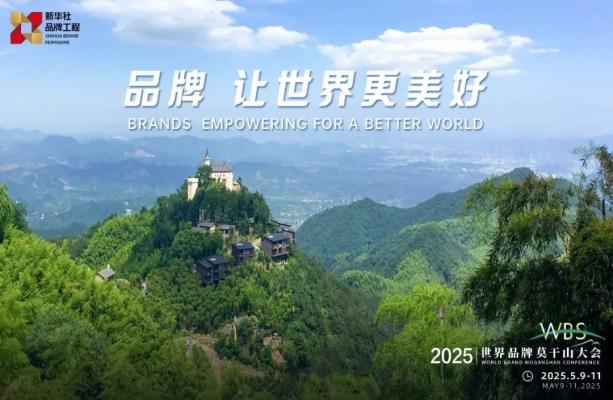
Sabtu, 10 Mei 2025 | 07:48

Sabtu, 10 Mei 2025 | 07:44
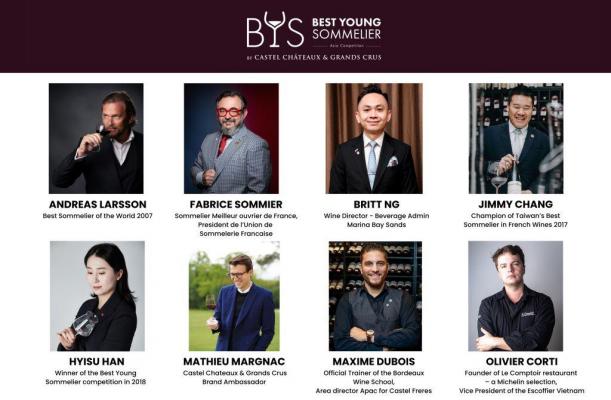
Sabtu, 10 Mei 2025 | 07:38

Jumat, 09 Mei 2025 | 11:24

Jumat, 09 Mei 2025 | 11:23

Jumat, 09 Mei 2025 | 10:01

Jumat, 09 Mei 2025 | 10:00


